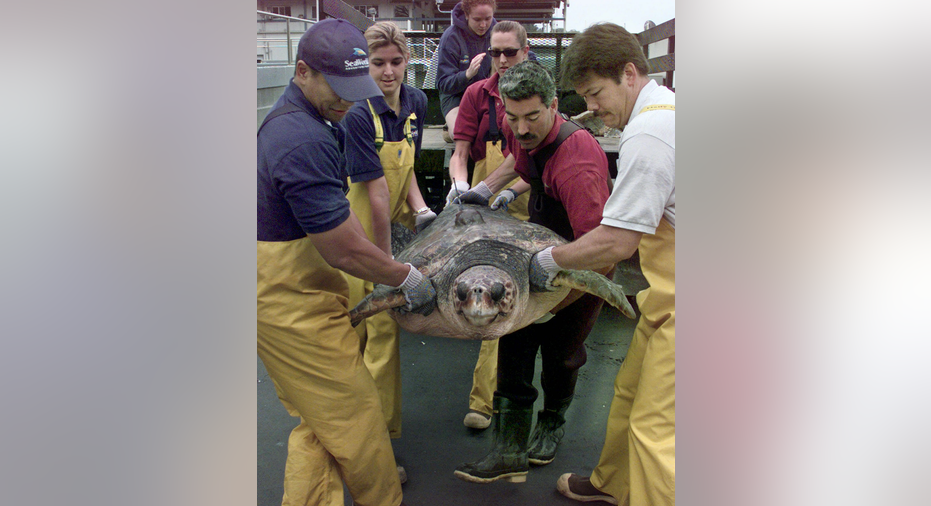US appeals court: Feds erred in Hawaii fishery expansion

HONOLULU – Federal agencies were wrong to allow Hawaii's longline swordfish industry to expand fishing efforts while allowing the hooking or entangling of more endangered sea turtles, a U.S. appeals court ruled.
The panel of judges on the 9th U.S. Circuit Court of Appeals ruled this week that the National Marine Fisheries Service failed to consider scientific data that showed the loggerhead turtle population would significantly decline when it set limits for the industry.
The judges also said the U.S. Fish and Wildlife Service illegally allowed the industry to kill protected migratory birds.
Swordfish longline fishing involves hundreds of baited hooks on miles of line. The practice can ensnare birds, turtles and other marine life.
Two conservation groups in a 2012 lawsuit challenged the rule that doubled limits on how many endangered sea turtles Hawaii's longline swordfish fishery can accidentally hook.
Both agencies are supposed to be protecting wildlife but have "instead been illegally helping the longliners push them to the brink of extinction," Earthjustice attorney Paul Achitoff said in a statement Thursday.
He represents plaintiffs Turtle Island Restoration Network and Center for Biological Diversity.
The 9th Circuit panel affirmed a separate decision saying another endangered species, leatherback turtles, wouldn't be jeopardized.
The conservation groups were disappointed by that, Achitoff said.
"We are reviewing the outcome and have no further comment at this time," said Jolene Lau, a spokeswoman for the National Oceanic and Atmospheric Administration. The fisheries service is an office within NOAA.
Hawaii Longline Association board member Jim Cook said the industry group will also review the case. He had no further comment.
Representatives from the fish and wildlife service didn't immediately comment Thursday.
The conservation groups believe the ruling means that limits on hooking or entangling loggerhead turtles must be reduced, Achitoff said.
Judge Consuelo Callahan dissented regarding migratory birds and loggerhead turtles, saying the majority's conclusion is a "classic example of the judiciary exceeding its authority by substituting an agency's judgments with its own."



















